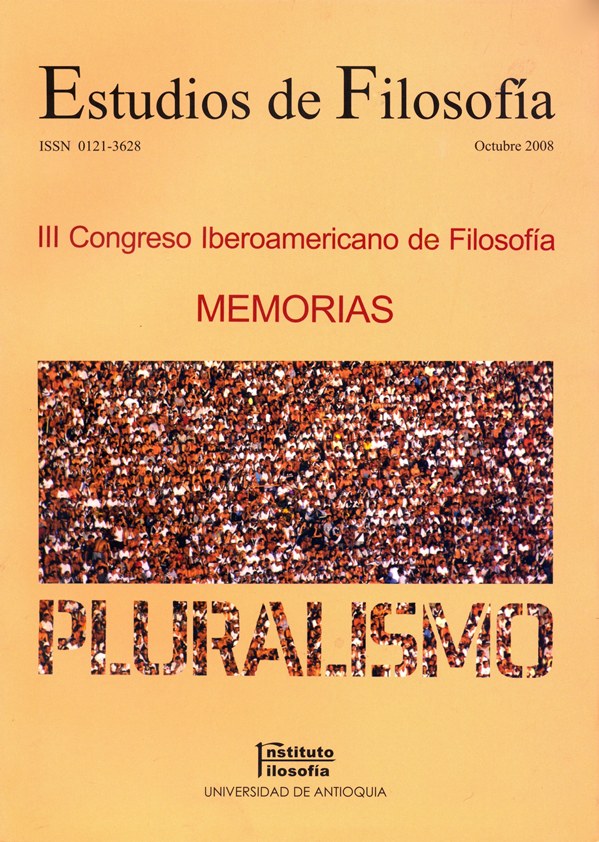The truth is told in various ways
DOI:
https://doi.org/10.17533/udea.ef.12927Keywords:
true, justice, Colombia, armed conflictAbstract
This reflection has a specific motivation and that it is necessary to mention because it explains the approach and the questions that are going to be raised here. In Colombia, a political-judicial model was adopted to try to overcome a problem of violence and violation of the elementary norms of social coexistence that has affected its population for decades. It is not really a problem, but, we could say, a family of problems, but the model has been designed to suit it. This model is embodied in the so-called "Law of Justice and Peace" (Law 975 of 2005), "by which provisions are issued for the reincorporation of members of armed groups organized outside the law, who effectively contribute to the achievement of national peace, and other provisions are dictated for humanitarian agreements ". The law regulates issues related to the investigation, prosecution, punishment and judicial benefits of persons linked to the aforementioned groups who demobilize and contribute "to national reconciliation." Article 4 establishes that the reconciliation process to which the law gives rise must "promote, in any case, the right of the victims to truth, justice and reparation." My interest at this point is limited to the "truth" element contained there. [Fragment]
Downloads
Downloads
Published
How to Cite
Issue
Section
Categories
License
Copyright (c) 2008 Juan J. Botero

This work is licensed under a Creative Commons Attribution-NonCommercial-ShareAlike 4.0 International License.
Authors who publish with this journal agree to the following terms:
1. The Author retains copyright in the Work, where the term "Work" shall include all digital objects that may result in subsequent electronic publication or distribution.
2. Upon acceptance of the Work, the author shall grant to the Publisher the right of first publication of the Work.
3. The Author shall grant to the Publisher a nonexclusive perpetual right and license to publish, archive, and make accessible the Work in whole or in part in all forms of media now or hereafter known under a Creative Commons Attribution-NoCommercia-ShareAlike (CC BY-NC-SA 4.0), or its equivalent, which, for the avoidance of doubt, allows others to copy, distribute, and transmit the Work under the following conditions: (a) Attribution: Other users must attribute the Work in the manner specified by the author as indicated on the journal Web site;(b) Noncommercial: Other users (including Publisher) may not use this Work for commercial purposes;
4. The Author is able to enter into separate, additional contractual arrangements for the nonexclusive distribution of the journal's published version of the Work (e.g., post it to an institutional repository or publish it in a book), as long as there is provided in the document an acknowledgement of its initial publication in this journal;
5. Authors are permitted, and Estudios de Filosofía promotes, to post online the preprint manuscript of the Work in institutional repositories or on their Websites prior to and during the submission process, as it can lead to productive exchanges, as well as earlier and greater citation of published work (see The Effect of Open Access). Any such posting made before acceptance and publication of the Work is expected be updated upon publication to include a reference to the Estudios de Filosofía's assigned URL to the Article and its final published version in Estudios de Filosofía.















